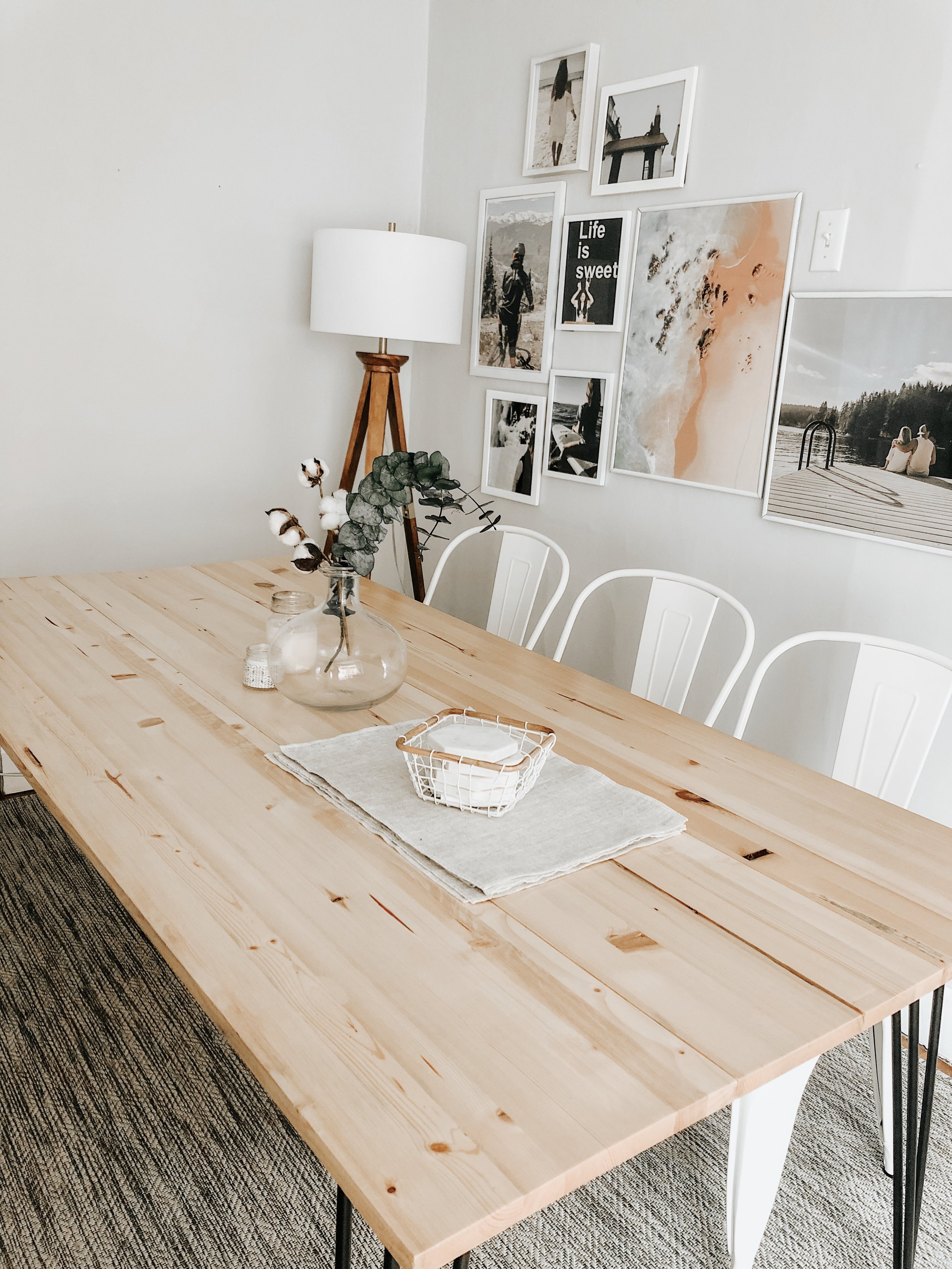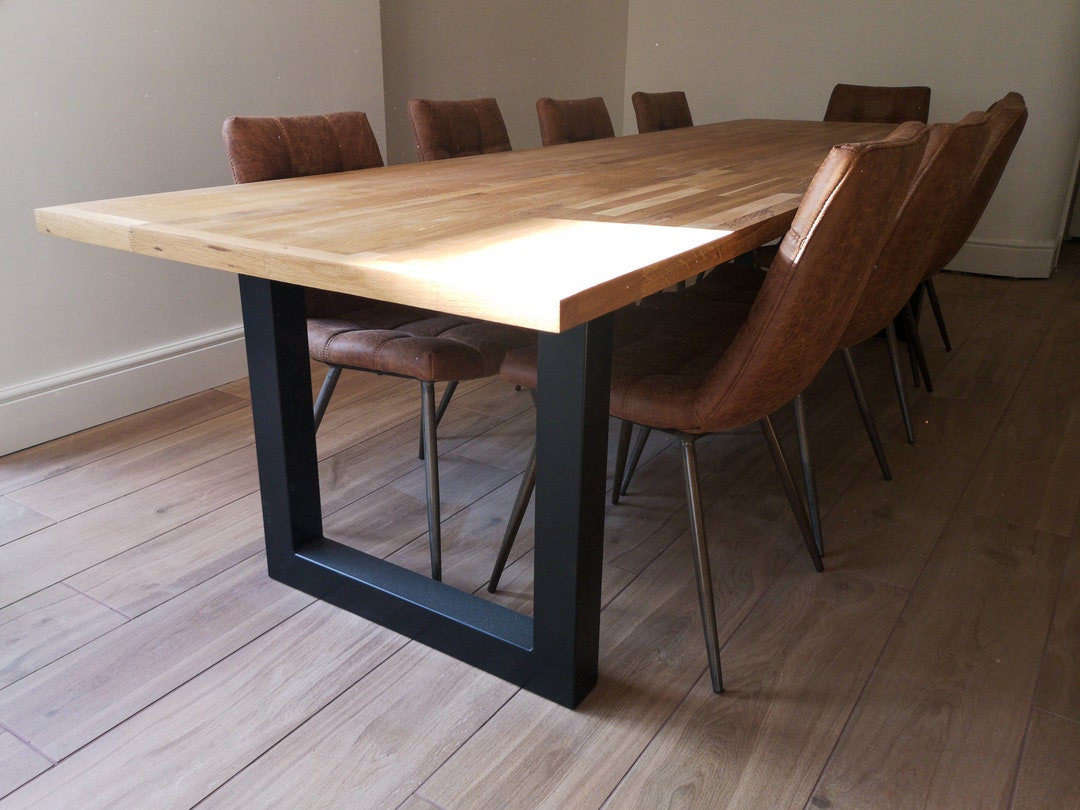Affordable and High-Quality Dining Room Table Legs for Every Budget
Wiki Article
Exactly How to Pick the Perfect Dining-room Table Legs for Your Home Design
Picking the ideal dining space table legs is a nuanced process that calls for careful factor to consider of numerous components, including your area constraints, aesthetic preferences, and sensible requirements. The interplay in between designs, products, and dimensions can considerably affect the ambiance of your eating location, making it vital to approach this decision carefully.Assess Your Dining Space
Examining your dining area is crucial for choosing the right table legs that match both aesthetic appeals and functionality. Begin by measuring the measurements of your eating area, including ceiling elevation, flooring room, and distance to other furniture. This information will certainly help determine the suitable dimension and elevation of your table, which straight influences the selection of table legs.Next, think about the design and layout of your dining room. An open-concept style might profit from table legs that offer visual agility, such as slim steel or acrylic options. On the other hand, an extra traditional setting may require durable wooden legs that provide a sense of permanence.
Evaluate the existing color scheme and materials in your eating area. Harmonizing the table legs with these components develops a natural appearance that improves the overall design.
Ultimately, a complete evaluation of your dining space will guide you in making an educated choice, ensuring that your table legs not just enhance the aesthetic appeal however additionally offer useful purposes.
Consider Your Design Preferences
When choosing dining-room table legs, it is vital to show on your personal design choices, as they substantially affect the total aesthetic of your eating room. Your option of table legs can either complement or comparison with existing design, making it important to align them with your recommended interior design motif.If your home leans towards a modern visual, consider streamlined metal or minimalist wood legs that offer a tidy, clean appearance. For an extra standard technique, elaborate wooden legs with detailed carvings can include a touch of sophistication and class. Industrial styles take advantage of durable, basic materials such as redeemed wood and steel mixes, reflecting a sturdy appeal.
In addition, farmhouse and rustic styles typically favor sturdy, chunky legs that evoke a feeling of heat and comfort. On the other hand, if your decoration is eclectic, you may select unusual forms or a mix of products to develop aesthetic passion.

Evaluate Product Options
The option of product for dining space table legs plays a crucial role in both sturdiness and visual charm. Typical materials include timber, steel, and composite options, each offering distinct characteristics that can influence the total appearance and durability of your table.Timber is a classic selection, recognized for its heat and adaptability. Hardwoods like oak and walnut offer extraordinary stamina and can be finished in various discolorations to match any kind of decoration. Nevertheless, softwoods like yearn are more prone to scrapes and damages, making them less optimal for high-traffic areas.
Steel legs, usually crafted from steel or aluminum, exhibit modernity and industrial beauty. They are resistant and extremely durable to wear, making them ideal for family members with kids or frequent celebrations (dining room table legs). Furthermore, metal can be ended up in different colors, boosting the customization opportunities
Composite materials, such as MDF or laminate, deal cost and varied styles. While typically much less long lasting than solid timber or metal, they can still give a trendy look and are typically very easy to keep.
Eventually, the product you pick should line up with your way of life, aesthetic choices, and the level of usage your table will certainly experience.
Determine Elevation and Size
Choosing the appropriate height and dimension for your dining area table is vital for both capability and comfort. The common elevation for dining tables normally ranges from 28 to 30 inches, enabling sufficient legroom for the majority of individuals when seated. Nevertheless, it is crucial to consider the dimensions of your eating space and the types of chairs you intend to utilize.article source

Furthermore, consider the proportions of your dining space. A larger table in a roomy location can develop a grand setting, while a smaller sized table functions well in even more intimate setups. Inevitably, the appropriate height and size will harmonize with your overall decor and improve the eating experience for you and your guests.
Explore Personalization Opportunities

Furthermore, the design of the legs can be tailored to fit different designs, such as rustic, contemporary, or industrial. Conical legs can evoke a mid-century modern feeling, while chunky, block-style legs might resonate with typical or farmhouse design.
Homeowners can additionally check out shade surfaces, from natural wood spots to paint, allowing them to match or comparison with the tabletop and bordering design.
Moreover, leg elevation can be gotten used to accommodate certain seating setups or personal choices, boosting both comfort and capability.
Lastly, special embellishments, such as makings or ornamental brackets, can additionally personalize the table legs, making the eating experience not just a dish but a statement piece in the home. By considering these customization alternatives, house owners can develop a dining-room table that really mirrors their uniqueness.
Final Thought
Picking the perfect eating area table legs requires cautious factor to consider of various aspects, consisting of the measurements of the dining space, style choices, product durability, and wanted elevation. Modification options even more improve the capability to attain a natural visual that enhances the total decor. By systematically assessing these elements, property owners can make sure that the selected table legs not only satisfy functional needs but also add favorably to the eating experience and setting of the home.Picking the suitable eating space table legs is a nuanced process that requires cautious factor to consider of numerous elements, including your room restraints, visual choices, and functional requirements.Evaluating your dining index space is crucial for selecting the right table legs that enhance both aesthetic appeals and performance.When identifying size, measure the area where the table will be placed to guarantee it fits easily, enabling for at the very least 36 inches of clearance around the table for very easy motion. A larger table in a roomy area can develop a grand atmosphere, while a smaller table functions well in even more intimate setups.Choosing the optimal dining area table legs calls for cautious consideration of numerous elements, including the dimensions of the eating room, style preferences, product sturdiness, and wanted height.
Report this wiki page